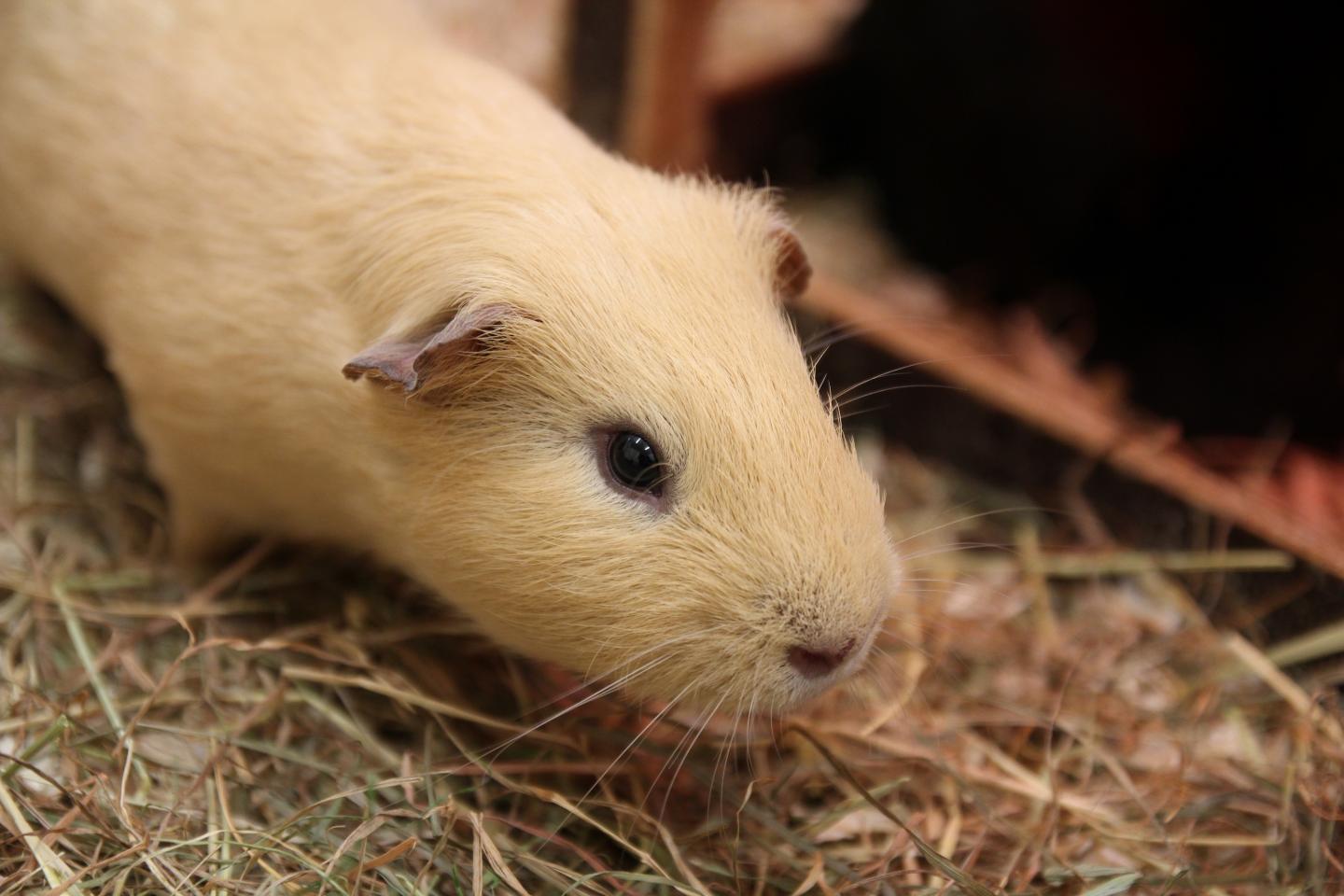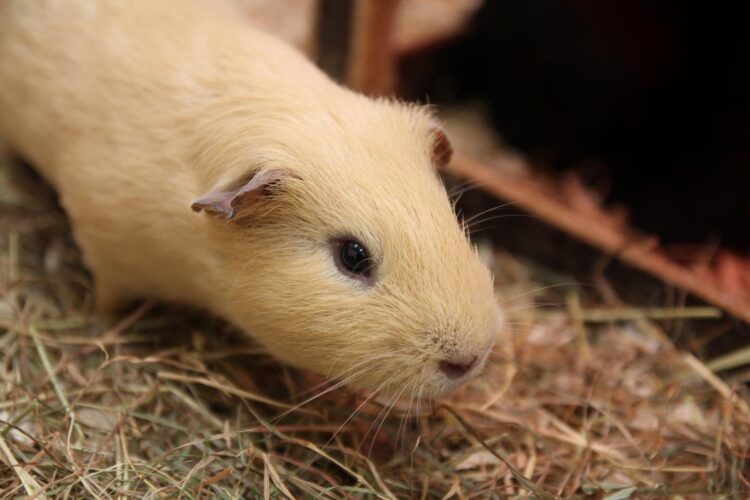Behavioural biologists at the University of Münster reveal advantageous hormonal changes in guinea pigs in a new social environment

Credit: Department of Behavioural Biology / Alexandra Mutwill
How do animals adapt their behaviour during life in order to assure survival and reproduction? This is a question of great interest for behavioural biologists worldwide. An essential step is to examine hormonal mechanisms which have a fundamental impact on the animal’s behaviour and thus make adaptations to various social situations possible.
It has been known for some time now – especially as a result of research in guinea pigs – that the social environment during adolescence, i.e. the period from late childhood through puberty into adulthood, has a considerable impact on how individuals behave in later life. Male guinea pigs, for example, which grew up only with a female during this period, are particularly aggressive towards unfamiliar males. Behavioural biologists at Münster University have now been able to demonstrate for the first time that males are still able to adapt their hormone systems to changes in their social environment in adulthood. The study has been published in the journal Proceedings of the Royal Society B.
Methodological approach:
The male guinea pigs used in the study grew up in different social housing conditions – either in large mixed-sex colonies with many other guinea pigs, or in pairs with a female. When the guinea pigs reached adulthood, the researchers transferred the males individually to pair housing with an unfamiliar female. This way in males stemming from colony housing a change of the social niche was induced. In contrast, in males which were previously housed in pairs the female partner was changed, but the social niche – i.e. pair living – remained the same. In order to assess immediate reactions of males to their new social environment, the researchers observed the behaviour of males and determined concentrations of the hormones testosterone and cortisol.
“We were able to demonstrate that one month after transfer to pair housing with an unfamiliar female, males which had previously been housed in colonies displayed a decrease in their testosterone levels and an increase in their cortisol responsiveness. Consequently, their hormone systems became similar to those of males in pair housing. This way, the animals were most likely also able to adapt their behaviour to the new situation,” explains Alexandra Mutwill, first author of the study and PhD student being supervised by Prof. Dr Norbert Sachser at the Institute for Neuro- and Behavioural Biology at the University of Münster. “As in the case of males which had previously been housed in pairs, the female partner but not the social niche was altered, the hormone systems did not change: the low testosterone levels and the high cortisol responsiveness persisted.”
When guinea pigs live in colonies with a large number of conspecifics, it is advantageous to have a hormonal status which favours a less aggressive behavioural tactic. However, after transfer to pair housing another hormonal status is beneficial which enables the male to adopt a more aggressive tactic in order to defend the female partner against unfamiliar males. In males from colony housing, the change in hormone systems built the basis for such a change in the behavioural tactic and probably reflects an evolutionary adaptation.
###
Media Contact
Alexandra Mutwill
[email protected]
Original Source
https:/
Related Journal Article
http://dx.





